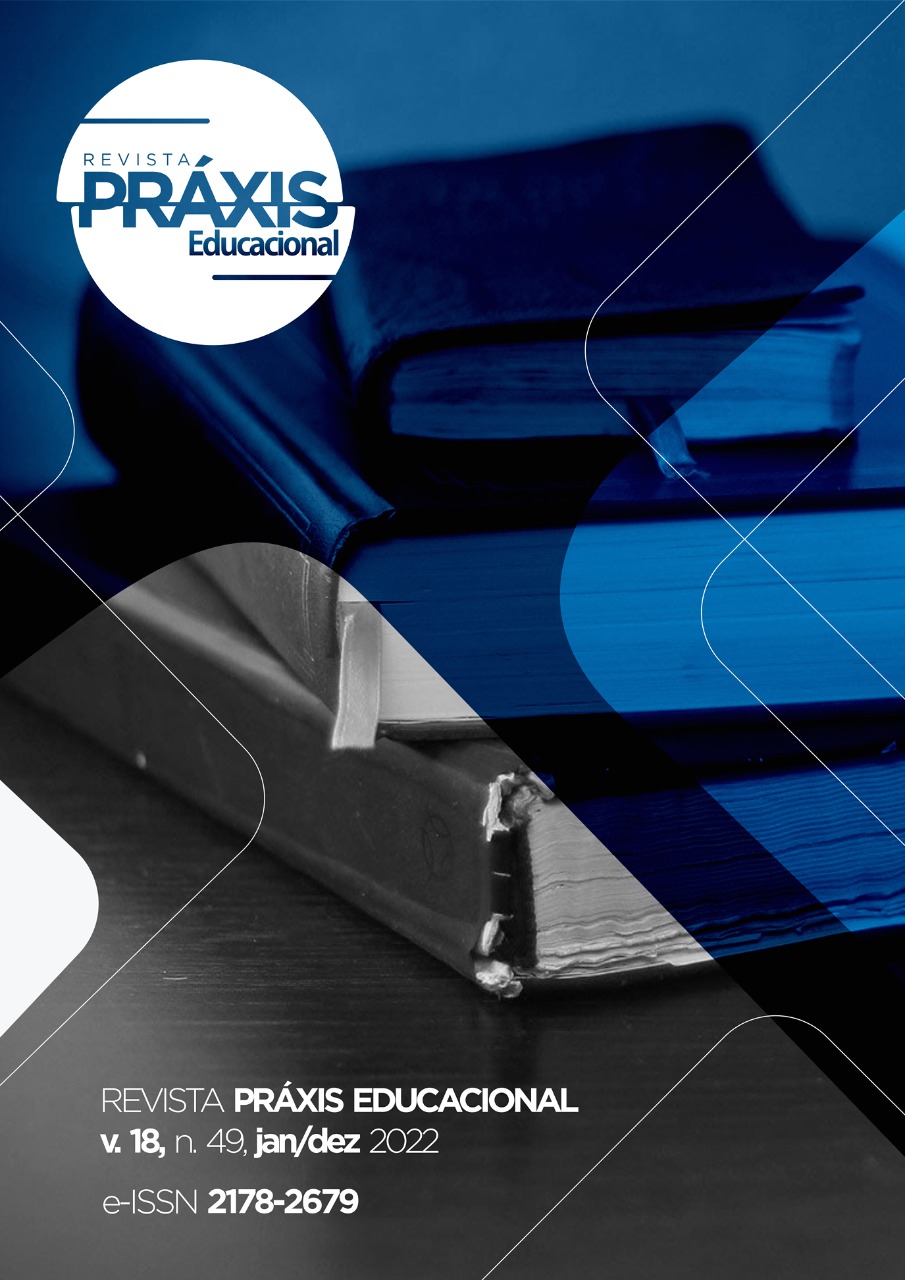Notes for an omnilateral education in Marx and Engels
DOI:
https://doi.org/10.22481/praxisedu.v18i49.9034Keywords:
education, marxism, omnilateral formationAbstract
The analysis of the contributions of Karl Marx and Friedrich Engels to education and polytechnic training is the objective proposed in this work. There is aconsensus among different Marxist researchers in the field of work and education that the concept of a polytechnic formation was originally delineated by Marx. Based on Marxian methodological postulates, we understand that education and teaching cannot beseparated from the mode of production that forged them. In order to achieve the proposed objectives, the article analyzes the reasons that prevent the emancipation of workers under capitalist relations, considering in this process the educational projectsof the nineteenth century and the actuality of the principle between teaching and work in education. Finally, it is concluded that, historically, the proposal of polytechnic education in education, according to Marxian thought, can contribute to the formation of a critical attitude towards capitalist relations. Education alone is not responsible for overcoming capitalism, however, it is impossible to think of revolution without it.
Downloads
Metrics
References
ANTUNES, Ricardo. O privilégio da servidão: o novo proletariado de serviços na era digital. São Paulo: Boitempo, 2018.
BEMVINDO. Vitor. A concepção socialista de educação politécnica: contribuições dos socialistas utópicos, libertários e científicos. Revista Histedbr Online, Campinas, n. 70, p. 138-162, dez. 2016. Disponível em: <https://periodicos.sbu.unicamp.br/ojs/index.php/histedbr/article/view/8649213/15749>. Acesso: 20 de agosto de 2021.
CAMBI, Franco. História da Pedagogia. São Paulo: Editora da UNESP, 1999.
FONTES, Virgínia. Capitalismo, crises e conjuntura. Serviço Social, São Paulo, 130, p. 409-425, set./dez. 2017. Disponível em:<https://www.scielo.br/j/sssoc/a/D6NmRJcx4Z98gmSSp4cCwLy/?format=pdf&lang=pt>. Acesso em: 16 de março de 2020.
FRIGOTTO, Gaudêncio; CIAVATTA, Maria; RAMOS, Marise. O trabalho como princípio educativo no projeto de educação integral de trabalhadores – Excertos. In: COSTA, Hélio da; CONCEIÇÃO, Martinho da. Educação Integral e Sistema de Reconhecimento e certificação educacional e profissional. São Paulo: Secretaria Nacional de Formação – CUT, 2005.
HOBSBAWM, Eric John. A era do capital: 1848-1875. Rio de Janeiro: Paz e Terra, 1982.
LOMBARDI, José Claudinei. Educação e ensino em Marx e Engels. Germinal: Marxismo e Educação em Debate, Londrina, v. 2, n. 2, p. 20-42; ago. 2010. Disponível em:<https://periodicos.ufba.br/index.php/revistagerminal/article/view/9581/7005>. Acesso em: 14 de março de 2020.
MANACORDA, Mario Alighiero. Marx e a pedagogia moderna. 2. ed. Campinas: Alínea editora, 2010.
MARX, Karl. O Capital. Livro I, v. 2. São Paulo: Difel, 1985.
MARX, Karl. Manuscritos econômico-filosóficos. São Paulo: Martin Claret, 2006.
MARX, Karl; ENGELS, Friedrich. Textos sobre Educação e ensino. 4. ed. São Paulo: Centauro, 2004.
MARX, Karl; ENGELS, Friedrich. A ideologia alemã. São Paulo: Boitempo, 2007.
MARX, Karl; ENGELS, Friedrich. Manifesto Comunista e Teses de Abril. São Paulo: Boitempo, 2017.
MÉSZÁROS, István. O século XXI: socialismo ou barbárie? São Paulo: Boitempo, 2003.
PONCE, Aníbal. Educação e luta de classes. São Paulo: Cortez, 2001.
SADER, Emir. Apresentação. In: MARX, Karl; ENGELS, Friedrich. A ideologia alemã. São Paulo: Boitempo, 2007.
SAVIANI, Dermeval. Escola e Democracia. São Paulo: Cortez/Autores Associados, 1989.
SAVIANI, Dermeval. O choque teórico da Politecnia. Trabalho, educação e saúde, Rio de Janeiro, v.1, n. 1, p.131-152, 2003. Disponível em: <https://www.tes.epsjv.fiocruz.br/index.php/tes>Acesso em: 10/03/2020.
SMITH, Adam. A riqueza das nações: investigação sobre sua natureza e suas causas. São Paulo: Nova Cultural, 1996. Vol. I.
Downloads
Published
How to Cite
Issue
Section
License
Copyright (c) 2022 Práxis Educacional

This work is licensed under a Creative Commons Attribution-ShareAlike 4.0 International License.
You are free to:
Share - copy and redistribute the material in any medium or format; Adapt - remix, transform, and build from the material for any purpose, even commercially. This license is acceptable for Free Cultural Works. The licensor cannot revoke these freedoms as long as you follow the terms of the license.
Under the following terms:
Attribution - You must appropriately give credit, provide a link to the license, and indicate if any changes have been made. You may do so in any reasonable way, but not in a way that suggests that you or your use is endorsed by the licensor.
There are no additional restrictions - You cannot apply legal terms or technological measures that legally restrict others to make any use permitted by the license.










